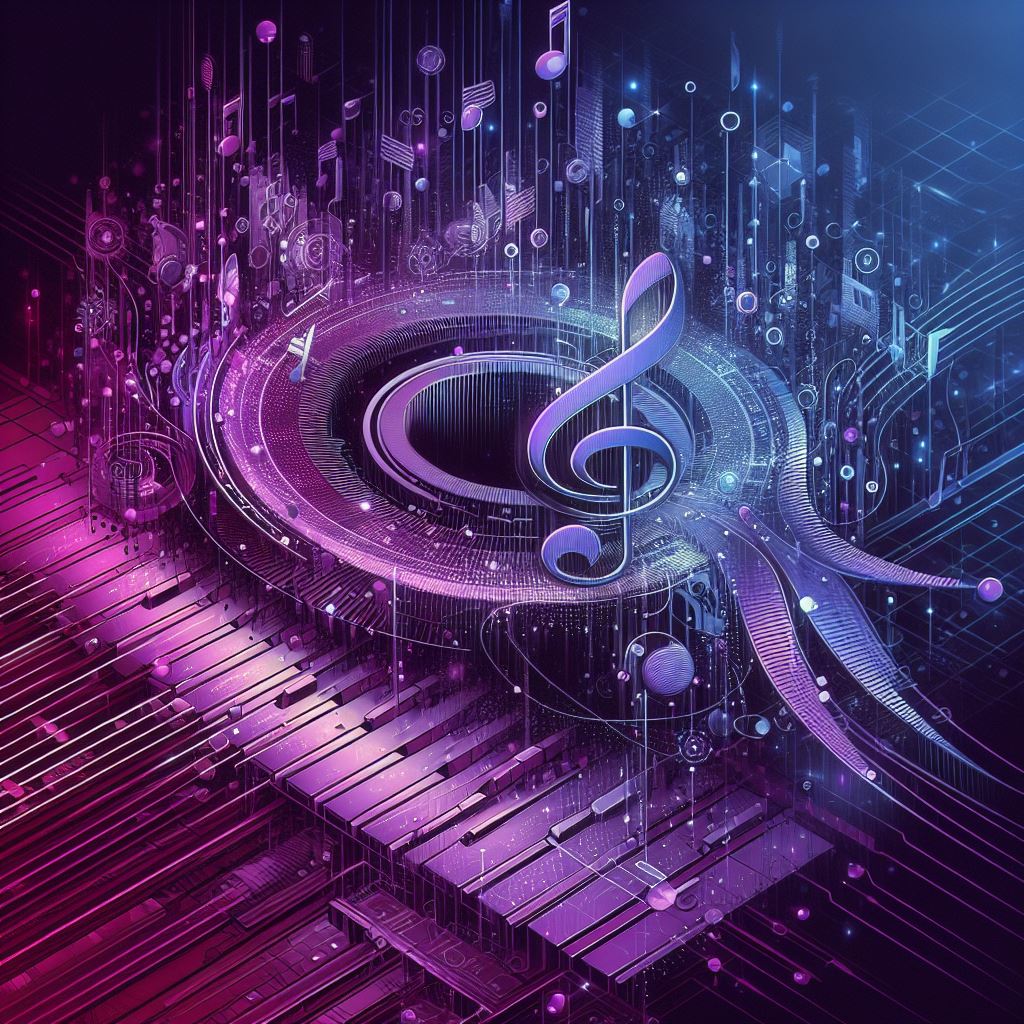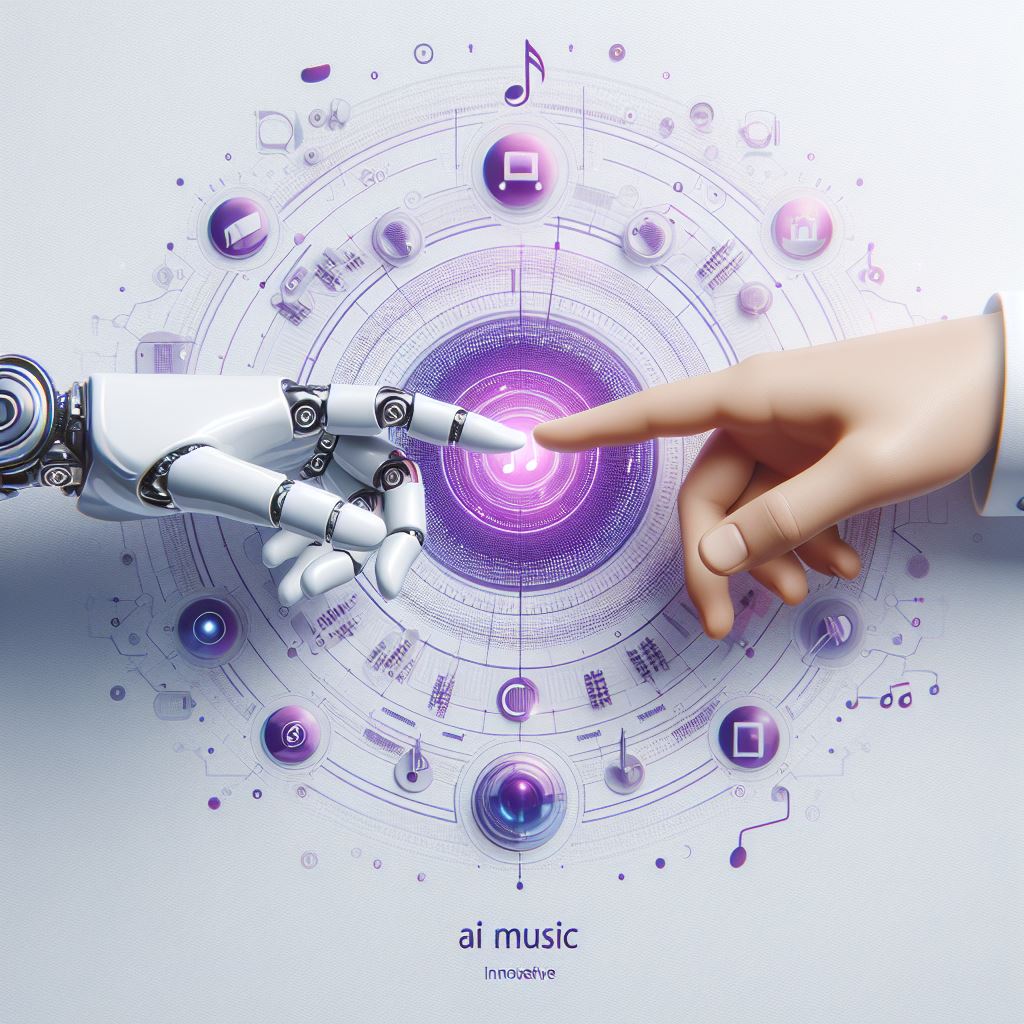FlowGPT: Viral Impact | A New Era of Music Technology Clashes
In the ever-evolving landscape of technology and creativity, a groundbreaking development has emerged, reshaping the contours of music production, distribution, and consumption. Dubbed FlowGPT, this innovative platform signifies a pivotal shift in the music technology arena, promising to usher in a new era characterized by unprecedented levels of creativity, personalization, and accessibility. The impact of FlowGPT on artists, producers, and consumers alike is profound, marking a moment of both excitement and adaptation as the industry grapples with the implications of this advanced tool.
Understanding FlowGPT: Revolutionizing Music with AI
At its core, FlowGPT is an AI-driven platform that leverages the power of generative pre-trained transformers to create and modify music. This technology, akin to its predecessors that have revolutionized textual content creation, is designed to understand and generate music based on vast datasets of musical compositions. The implications are vast: from generating new music based on specific genres, moods, or artist styles, to offering sophisticated tools for music editing and production, FlowGPT stands at the forefront of a musical revolution.
Key Features and Capabilities
- Generative Music Creation: FlowGPT can produce original compositions, offering tools that allow for the creation of music by specifying genre, tempo, and mood, among other parameters.
- Style Imitation: Artists and producers can use FlowGPT to generate music that follows the stylistic nuances of existing musicians or bands, providing a platform for exploring new creative directions.
- Collaborative Composition: The platform enables collaboration between AI and human musicians, opening up new avenues for creativity and production techniques.
- Adaptive Learning: FlowGPT learns from feedback and iterations, continually refining its output to better align with users’ preferences and intentions.
The Impact on the Music Industry
FlowGPT’s introduction into the music scene is not without its controversies and challenges. The technology’s capabilities raise questions about originality, copyright, and the future role of human musicians in a landscape increasingly dominated by AI.
Enhancing Creativity or Eroding Originality?
One of the most debated aspects of FlowGPT’s rise is its impact on creativity and originality in music. Proponents argue that FlowGPT serves as a tool that can enhance human creativity, offering musicians and producers a way to explore new creative possibilities without the limitations of their technical skills or musical knowledge. Critics, however, fear that the ease of generating music with AI could lead to a homogenization of music, where unique human touches are lost in favor of algorithmically generated tunes that prioritize virality or adherence to current trends.

Copyright and Ethical Considerations
The legal and ethical implications of AI-generated music are complex. With FlowGPT, questions arise about the ownership of music created with the help of AI: Does it belong to the user, the creators of FlowGPT, or is it a product of public domain? Furthermore, the platform’s ability to mimic the style of existing artists brings up concerns regarding copyright infringement and the ethicality of creating derivative works without explicit consent.
Navigating the Future
As the music industry grapples with these challenges, the role of platforms like FlowGPT will undoubtedly evolve. The potential for democratizing music production, offering new tools for creativity, and transforming music education is immense. However, navigating the ethical, legal, and creative challenges will require careful consideration and collaboration among artists, producers, legal experts, and the creators of AI technologies.
Embracing Change and Collaboration
The successful integration of AI into the music industry hinges on a collaborative approach that respects and enhances human creativity while acknowledging and addressing the potential pitfalls of technology-driven creation. Education and dialogue will play crucial roles in ensuring that platforms like FlowGPT enrich the music landscape without diminishing the value of human artistry and creativity.
As we stand on the brink of this new era, the clash between technology and tradition in music offers an opportunity for reflection, innovation, and growth. FlowGPT, with its viral impact and revolutionary capabilities, embodies the potential for a harmonious fusion of human and artificial creativity, promising a future where music continues to evolve in ways we can only begin to imagine.
Exploring the Creative Process with FlowGPT
The advent of FlowGPT not only heralds a new era in music production but also significantly alters the creative process for artists and producers. This section delves into the transformative effects of FlowGPT on music creation, collaboration, and the broader implications for the industry’s creative workflows.
Redefining the Artist’s Toolkit
FlowGPT introduces a suite of tools that expand the traditional toolkit available to musicians and producers. By integrating AI-driven music generation, editing, and production capabilities, artists can push the boundaries of their creative endeavors. This technological enhancement allows for experimentation with complex compositions, arrangements, and sound design that were previously inaccessible to many due to technical or financial constraints.
- Experimentation and Innovation: Artists can leverage FlowGPT to explore new genres, blend styles, and create unique sounds, fostering an environment ripe for innovation and experimentation.
- Rapid Prototyping: The platform enables musicians to quickly generate musical ideas, sketches, or full compositions, significantly reducing the time from concept to creation.
The Democratization of Music Production
FlowGPT’s impact extends beyond individual creativity, contributing to the democratization of music production. By lowering the barriers to entry, the platform enables a broader range of individuals to participate in music creation, regardless of their musical background or access to expensive equipment.
- Accessibility for Emerging Artists: Aspiring musicians with limited resources can use FlowGPT to create high-quality music, opening up opportunities for exposure and career development.
- Educational Applications: Music educators can incorporate FlowGPT into their teaching methodologies, providing students with hands-on experience in composition, music theory, and production techniques.

Collaboration in the Digital Age
The collaborative potential of FlowGPT represents one of its most compelling aspects. The platform facilitates a new form of collaboration that transcends geographical and stylistic barriers, connecting artists, producers, and listeners in a shared creative endeavor.
- Global Collaborative Projects: Musicians from different parts of the world can collaborate on projects, blending diverse influences and ideas to create something truly unique.
- Audience Engagement: FlowGPT can also serve as a tool for engaging with fans, allowing artists to involve their audience in the creative process, from influencing the direction of new compositions to generating customized versions of tracks.
Impact on Music Production and Distribution
The influence of FlowGPT extends into the realms of music production and distribution, redefining how music reaches audiences and how artists monetize their work. This shift has implications for record labels, music platforms, and the broader ecosystem of the music industry.
Streamlining Production Workflows
FlowGPT can streamline production workflows, making it easier and faster to produce ready-to-publish tracks. This efficiency can lead to a more dynamic music market, where artists can respond more quickly to trends and audience demands.
- Enhanced Sound Design: Producers can utilize FlowGPT to craft intricate soundscapes, leveraging AI to suggest or generate layers, effects, and textures that complement their artistic vision.
- Automated Mixing and Mastering: The platform could offer automated mixing and mastering options, tailored to the specific needs of a track, thereby reducing the need for expensive post-production services.
Changing Dynamics of Music Distribution
The ease of creating and producing music with FlowGPT might lead to an influx of new music, impacting how music is distributed, discovered, and consumed.
- Direct-to-Listener Platforms: Artists may increasingly bypass traditional distribution channels, opting to release music directly to listeners through social media, streaming platforms, and personal websites.
- Curatorial Challenges and Opportunities: The potential increase in music volume could enhance the role of curators, playlists, and algorithm-driven recommendations in helping listeners discover new music that aligns with their tastes.
As FlowGPT reshapes the music landscape, it prompts a reevaluation of existing models of production, collaboration, and distribution. The platform’s capabilities offer exciting possibilities for creativity and innovation, challenging artists, producers, and the industry to adapt and evolve in the face of technological change. The future of music, enriched by AI like FlowGPT, promises a world where the barriers between creators and audiences are further diminished, fostering a more inclusive and diverse musical ecosystem.


